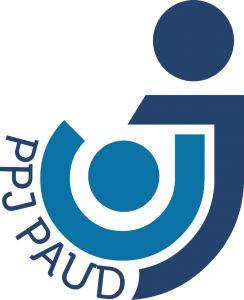Pengaruh Media Pembelajaran Sosial Board Game Terhadap Perkembangan Sosial Emosional Anak Usia 5-6 Tahun di TK Pertiwi Sowan Kidul
DOI:
https://doi.org/10.30736/jce.v8i1.2001Keywords:
Perkembangan Sosial Emosional Anak , Anak Usia 5-6 Tahun, Board gameAbstract
Aspek sosial emosional seorang anak bisa dinyatakan berkembang secara optimal jika anak tersebut bisa memahami perasaan yang dimilikinya ataupun dari individu lainnya, menjalin persahabatan dan memiliki kesadaran untuk senantiasa berbagi. Pelaksanaan riset ini ditujukan guna mencari tahu pengaruh yang diberikan media pembelajaran sosial board game terhadap perkembangan sosial emosional anak usia 5-6 tahun di TK Pertiwi Sowan Kidul. Penelitian yang dipakai adalah kuantitatif dengan desain penelitian pre-experimental design. Sampel yang peneliti gunakan mencakup 23 individu yang masih berusia antara rentang 5 hingga 6 tahun yang merupakan peserta didik dari TK Pertiwi Sowan Kidul. Hasil penelitian menunjukkan bahwa thitung 10,396 dan nilai ttabel 1,717. Karena thitung > ttabel atau 10,396 > 1,717 maka Ho ditolak dan Ha diterima. Maka dapat disimpulan bahwa terdapat pengaruh yang signifikan media pembelajaran sosial board game terhadap perkembangan sosial emosional anak usia 5-6 tahun di TK Pertiwi Sowan Kidul. Hal tersebut membuktikan bahwa Metode board game dapat mengembangkan keterampilan sosial untuk perolehan pengetahuan, memberikan pengalaman penting kepada anak dan keterampilan sosial emosional, kognisi dan bahasa.
References
Afrianingsih, A., Sa’adah, I., Astuti, I. P., Salsabillah, A. P., Junaidi, M. H., Farida, N., … Musdalifah, A. (2021). Kegiatan Pembelajaran Tk Bumi Ukir Berbasis Kearifan Lokal Budaya Di Jepara. Tumbuh Kembang: Kajian Teori Dan Pembelajaran PAUD, 8(1), 62–68. https://doi.org/10.36706/jtk.v8i1.13771
Annisa, Nur Soviati (2024) Implementasi Media Command Board Dalam Mengembangkan Sosial Emosional Anak Usia Dini 5-6 Tahun Di Tk Goemerlang Sukarame Bandar Lampung. Diploma Thesis, Uin Raden Intan Lampung.
Amalia, D., & Afrianingsih, A. (2023). Pengaruh Pembelajaran Bermuatan STEAM pada Kemandirian ditinjau dari Jenis Kelamin Anak Usia 5-6 Tahun. PAUDIA : Jurnal Penelitian Dalam Bidang Pendidikan Anak Usia Dini, 12(2), 288–296. https://doi.org/10.26877/paudia.v12i2.16281
Aurumajeda, T., Nurhidayat, M., Muallimah, H., Studi, P., Komunikasi Visual, D., & Produk, D. (2021). Pengenalan Board game “Hootania” Dalam Meningkatkan Belajar Membaca Untuk Anak Taman Kanak-Kanak Di Igtk Kecamatan Ngamprah Kab Bandung Barat. Jl. Soekarno Hatta, 1(2), 3.
Febriati, L., & Fauziah, A. (2020). Pengaruh Intensitas Penggunaan Gadget Terhadap Sosial Emosional Anak Usia Pra Sekolah Di Tk Yogyakarta. The Shine Cahaya Dunia Kebidanan, 5(1), 1–12.
Maryanti, E., Egok, A. S., & Febriandi, R. (2021). Pengembangan Media Board games Berbasis Permainan Tradisional Egrang Batok untuk Siswa Sekolah Dasar. Jurnal Basicedu, 5(5), 4212–4226. https://doi.org/10.31004/basicedu.v5i5.1486
Rofi’ah, U. A., Hafni, N. D., & Mursyidah, L. (2022). Sosial Emosional Anak Usia 0-6 Tahun dan Stimulasinya Menurut Teori Perkembangan. Az-Zahra: Journal of Gender and Family Studies, 3(1), 41–66. https://doi.org/10.15575/azzahra.v3i1.11036
Sartika, & Erni Munastiwi. (2019). Peran Guru Dalam Mengembangkan Kreativitas Anak Usia Dini Di TK Islam Terpadu Salsabila Al-Muthi’in Yogyakarta. Golden Age: Jurnal Ilmiah Tumbuh Kembang Anak Usia Dini, 4(2), 35–50. https://doi.org/10.14421/jga.2019.42-04
Siregar, D. S., & Ananda, R. (2023). Pengembangan Media Pembelajaran Board game Matematika Ular Tangga untuk Siswa Tunarungu. Jurnal Cendekia : Jurnal Pendidikan Matematika, 7(2), 1924–1935. https://doi.org/10.31004/cendekia.v7i2.2340
Syahrul, S., & Nurhafizah, N. (2021). Analisis Pengaruh Pola Asuh Orang Tua Terhadap Perkembangan Sosial dan Emosional Anak Usia Dini Dimasa Pandemi Corona Virus 19. Jurnal Basicedu, 5(2), 683–696. https://doi.org/10.31004/basicedu.v5i2.792
Tsamara Dhida, T. (2021). The Effect Of Animation Video Learning Media On Social Emotional Development Of Early Children: A Literature Review. Early Childhood Education and Development Journal, 3(1), 47–58.
Downloads
Published
How to Cite
Issue
Section
License
Copyright (c) 2024 JCE (Journal of Childhood Education)

This work is licensed under a Creative Commons Attribution-ShareAlike 4.0 International License.
Please find the rights and licenses in JCE (Journal of Childhood Education). By submitting the article/manuscript of the article, the author(s) agree with this policy. No specific document sign-off is required.
1. License
Use of articles will be governed by the Creative Commons Attribution - ShareAlike license as currently displayed on Creative Commons Attribution-ShareAlike 4.0 International License.
2. Author(s)' Warranties
The author warrants that the article is original, written by stated author(s), has not been published before, contains no unlawful statements, does not infringe the rights of others, is subject to copyright that is vested exclusively in the author and free of any third party rights, and that any necessary written permissions to quote from other sources have been obtained by the author(s).
3. User Rights
JCE (Journal of Childhood Education)'s spirit is to disseminate articles published are as free as possible but there is a little payment for publication. Under the Creative Commons license, JCE (Journal of Childhood Education) permits users to copy, distribute, display, and perform the work for commercial purposes. Users will also need to attribute authors and JCE (Journal of Childhood Education) on distributing works in the journal and other media of publications.
4. Co-Authorship
If the article was jointly prepared by more than one author, any authors submitting the manuscript warrants that he/she has been authorized by all co-authors to be agreed on this copyright and license notice (agreement) on their behalf, and agrees to inform his/her co-authors of the terms of this policy. JCE (Journal of Childhood Education) will not be held liable for anything that may arise due to the author(s) internal dispute. JCE (Journal of Childhood Education) will only communicate with the corresponding author.
5. Miscellaneous
JCE (Journal of Childhood Education) will publish the article (or have it published) in the journal if the article’s editorial process is successfully completed. JCE (Journal of Childhood Education)'s editors may modify the article to a style of punctuation, spelling, capitalization, referencing and usage that deems appropriate. The author acknowledges that the article may be published so that it will be publicly accessible and such access will be free of charge for the readers as mentioned in point 3.
JCE (Journal of Childhood Education) by Universitas Islam Lamongan is licensed under a Creative Commons Attribution-ShareAlike 4.0 International License.Based on a work at http://journalfai.unisla.ac.id/index.php/jce.












